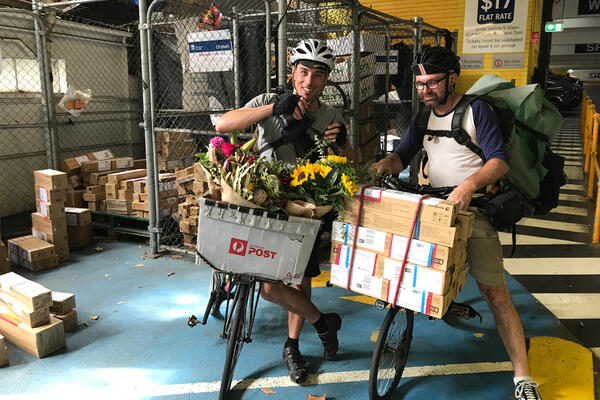
Microhubs
As consumers’ shopping behaviour change towards more online shopping, an increasing demand for deliveries increases freight traffic, contributing to congestion in our cities.
By 2030, emissions from delivery traffic will increase by 32% and congestion will rise by over 21%1. This is impacted not only because of increasing volumes but also of the service expectations, with an increased expectation of expedited or same day delivery. This is also occurring at a time when space to accommodate freight and servicing traffic is reducing.
Inventory is increasingly consolidated into large efficient and often automated warehouses. Orders are then moved to microhubs and micrologistics approaches in close proximity to the customer. This approach offers the opportunity for supply chain efficiency, customer service and reducing some of the congestion and environmental challenges for urban delivery.
A microhub would enable large vehicles to deliver into it, goods to be temporarily stored and then use smaller micrologistics approaches to deliver to customers in the local area. Through consolidated deliveries in and use of low emission micrologistics approaches for last mile delivery, the approach can substantially reduce vehicle kilometres travelled and vehicle emissions.
What is Transport doing?
TfNSW have partnered with City of Sydney since 2016 to establish and support a successful microhub on the fringe of Sydney CBD. The hub has demonstrated the success in transferring deliveries from vans to cargo bike couriers for delivery (and collections) into the CBD. This has eased congestion, reduced emissions and improved service to customers2.
The provision of suitable facilities and land infrastructure, such as having microhub facilities close to the customer, can improve freight efficiency, reduce environmental impacts and maintain service levels for last mile freight deliveries.
The Department of Planning have recently passed legislation supporting the development of microhub facilities (Local Distribution Premises, June 2022) in recognition of the growing last mile freight task.
Other cities are pursuing the same approaches.
Contact
For more information contact freight@transport.nsw.gov.au.
Reference materials
- How to develop a microhub (PDF, 1.06 MB)
- New York City Department of Transport: Microhubs Pilot Report 2023 (PDF, 3.12 MB)
- Legislation of Local Distribution Premises in NSW (June 2022)
1 World Economic Forum, 2020, The Future of the Last-Mile Ecosystem, Geneva https://www3.weforum.org/docs/WEF_Future_of_the_last_mile_ecosystem.pdf
2 https://mhdsupplychain.com.au/2017/02/15/sydney-courier-hub-eases-cbd-congestion/
